Retro Replay Review
Gameplay
Kid Kool and the Quest for the Seven Wonder Herbs delivers a unique twist on the classic side‐scrolling platformer formula by placing a strong emphasis on momentum and precise speed management. Unlike many games in the genre where you can accelerate and halt instantly, Kid Kool requires you to build up speed gradually and commit to each movement. This design choice lends a satisfying weight to each jump and dash, but also demands that players plan their routes carefully to clear gaps and avoid hazards.
(HEY YOU!! We hope you enjoy! We try not to run ads. So basically, this is a very expensive hobby running this site. Please consider joining us for updates, forums, and more. Network w/ us to make some cash or friends while retro gaming, and you can win some free retro games for posting. Okay, carry on 👍)
The core challenge revolves around gathering seven magical herbs within a three‐day in‐game deadline to cure the ill king. While the time limit encourages a brisk pace through each level, it never feels punitive; most stages can be completed quickly once you learn the optimal momentum thresholds for each jump. The scarcity of checkpoints, however, means that a misjudged leap can send you back further than expected, testing both your patience and your mastery of the physics engine.
Enemy encounters are straightforward yet strategic. You can defeat foes by stomping them twice—once to knock them into the ground and a second time to eliminate them entirely. In addition, you can recruit a furry companion by barreling past specific trigger spots at top speed. This companion acts as both a throwable projectile and a temporary shield, absorbing one hit so that you lose only the sidekick instead of a life. Learning when to hold onto or toss your friend becomes a small but engaging tactical decision throughout each stage.
Overall, the gameplay loop of speed‐based platforming, paired with enemy variety and the added safety net of the companion, strikes a rewarding balance. The lack of mid‐air control means you’re constantly thinking ahead—gauging how fast you need to be to clear that wide chasm or reach a secret ledge. It can be challenging at first, but mastering these mechanics is exactly what makes Kid Kool feel fresh and addictive for platformer enthusiasts.
Graphics
On the visual front, Kid Kool embraces the vibrant, pixelated charm of late ’80s console titles. Each level boasts a distinct color palette—from lush green forests and fiery caverns to icy mountains—helping you immediately distinguish one environment from the next. Background elements often scroll at different speeds, creating a subtle parallax effect that enhances the illusion of depth without taxing the hardware.
The sprite work for Kid Kool and his upcoming foes is crisp and expressive, with simple but memorable animations that convey personality despite the limited resolution. The furry companion, for instance, has a playful bounce both when following you and when hurled at enemies, adding to the game’s lighthearted appeal. Enemy designs range from wobbling slimes to spiky beetles, each sporting clear attack patterns that become easier to read with experience.
Despite occasional color clash and tile flicker typical of the system, the art direction keeps each stage visually coherent and engaging. Little details—such as fluttering leaves in forest levels or glowing embers in volcanic zones—inject life into the environments. You’ll often find yourself pausing to admire the layered scenery, even as you’re plotting the next high‐speed jump.
Sound effects and background music complement the visuals with jaunty tunes and satisfying jumps and stomps. While the soundtrack doesn’t break new ground, its catchy melodies stick with you, and the audio cues for gathering herbs or picking up the companion are clear and rewarding. Overall, the audiovisual package contributes positively to the game’s nostalgic yet polished presentation.
Story
The narrative premise of Kid Kool and the Quest for the Seven Wonder Herbs is delightfully straightforward: the king has fallen gravely ill, and only the combined magic of seven rare herbs can save him. You play as Kid Kool, the plucky hero chosen to retrieve these herbs within a strict three‐day period. It’s a classic “save the realm” setup, but the ticking clock lends a pleasant urgency to your exploration and platforming exploits.
While there’s minimal character development or dialogue beyond brief interludes with the royal court, the story serves its purpose as a motivating backdrop for the gameplay. Each herb you collect carries a moment of triumph, and the realization that time is slipping away keeps you engaged. The lack of superfluous cutscenes means you’re rarely yanked out of the action, maintaining a solid pace from start to finish.
The whimsical tone shines through in the design of the magical herbs themselves, each uniquely colored and shaped to stand out on the stage. There’s a subtle sense of discovery when you locate an herb hidden behind what appears to be an impassable obstacle—encouraging replay of earlier levels once you’ve honed your momentum techniques. Though simple, the narrative effectively frames each level as a vital step in a grand quest.
By the time you return with all seven herbs, you’ve developed a satisfying sense of progression both mechanically and thematically. Even without deep storytelling, Kid Kool’s charming plot keeps the stakes clear and your objective focused, making the journey through its world feel purposeful and rewarding.
Overall Experience
Kid Kool and the Quest for the Seven Wonder Herbs stands out among its peers thanks to its inventive use of momentum and speed‐dependent platforming. Newcomers to the genre may find the physics engine unforgiving at first, but persevering through the learning curve yields an exhilarating sense of control once you master the finer points of acceleration and jump distance. The inclusion of the furry companion adds both utility and strategy, bolstering the game’s approachable yet challenging nature.
While the story is light and the game’s relatively short—roughly three to five hours to collect all herbs and finish the main quest—replay value is high for completionists aiming to beat times or uncover every hidden route. The level design rewards experimentation and skillful pacing, so there’s always room to shave off a few seconds and improve your runs. Hardcore platformer fans will appreciate these nuances, whereas casual players may stop once they’ve seen the ending.
Visually and sonically, Kid Kool captures the nostalgic spirit of its era without feeling outdated or clumsy. The varied environments, smooth animations, and memorable soundtrack work in harmony to maintain an inviting atmosphere even when the challenge spikes. The game runs smoothly from start to finish, free of major technical hiccups that could undermine its platforming focus.
Ultimately, Kid Kool and the Quest for the Seven Wonder Herbs offers a thoroughly enjoyable blend of speed‐driven mechanics, charming presentation, and satisfying level design. Its tight controls and rewarding progression make it a standout title for fans of retro‐style platformers, while its straightforward premise and incremental difficulty curve ensure that newcomers also have a blast. If you’re looking for a concise, momentum‐centric adventure with just the right mix of nostalgia and fresh ideas, Kid Kool is well worth your time.
 Retro Replay Retro Replay gaming reviews, news, emulation, geek stuff and more!
Retro Replay Retro Replay gaming reviews, news, emulation, geek stuff and more!
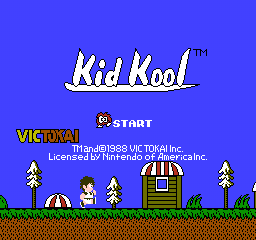
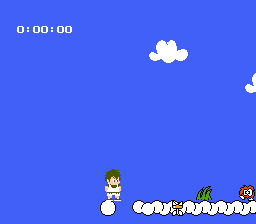
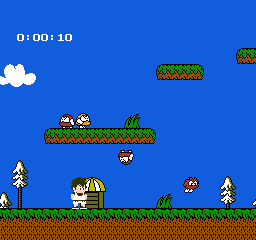
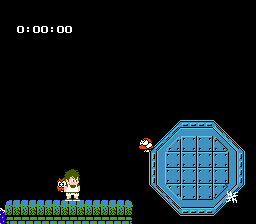
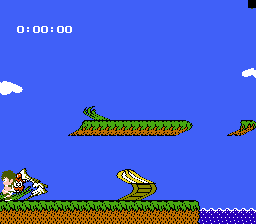
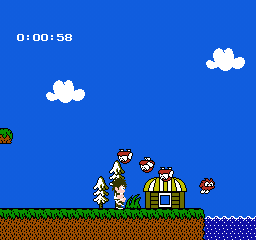
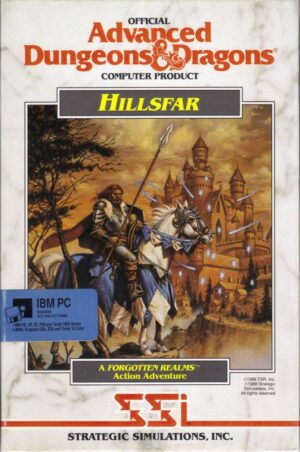

Reviews
There are no reviews yet.